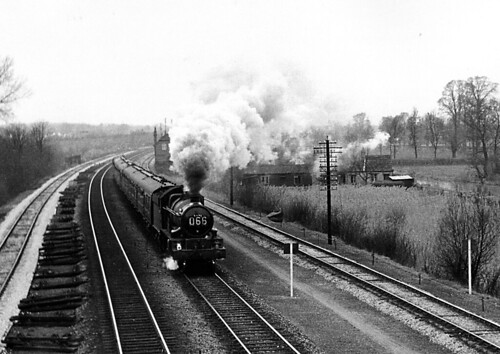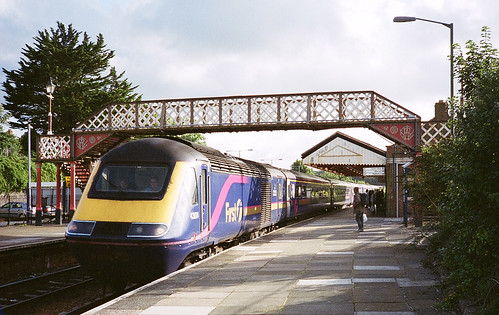
The Great Western main line was once famous for high speeds. Brunel built the original line between London and Bristol to the broad gauge with the aim of running the trains as fast as possible. In the nineteen-thirties, the Castle class locomotives (above) held the title for what was for a short while the fastest train in the world, with record-breaking runs between Swindon and London.

Then, in the 1970s, the Inter-City 125 (HST) trains (above) were introduced, maintaining the tradition of speed, with many trains running non-stop from London, with Bath as the only stop. What happened then? With the present timetable, trains stop at many places quite close together such as Slough, Reading, Didcot, Swindon, Chippenham and Bath. The population has spread out through Berkshire and Wiltshire, which has created a different pattern traffic of demand. The Great Western main line has become an inter-urban stopping service. These days, the HSTs are doing relatively little running at their top speed and when their engines were replaced recently, they would have benefitted from being fitted with lower gears to give better acceleration at the cost of a lower maximum speed.
The contemporary Great Western timetable reflects present day needs throughout the area where most people in Britain actually live. 80% of Britain's population lives south of a line drawn east-west through Leeds and west of a line drawn north-south through Bristol ie in one third of the land area. Within that area people and industry is dispersed to the point that it is quite difficult to serve by any form of public transport, least of all by high speed rail.
High speed is of little benefit in these conditions - what is needed is good acceleration and modestly priced walk-on services. Each increment in speed yields a successively smaller time saving because time equals distance divided by speed. In other words, higher speeds give diminishing returns. There are optimum operating speeds for rail in different conditions and in the UK it is probably around 160 kph.
Which leaves little place for high speed rail. The latter implies high fares, concessions only for fixed advance bookings, and rolling stock with as many seats as possible crammed in. Not the sort of thing that would tempt people out of their cars.
Kommentarer